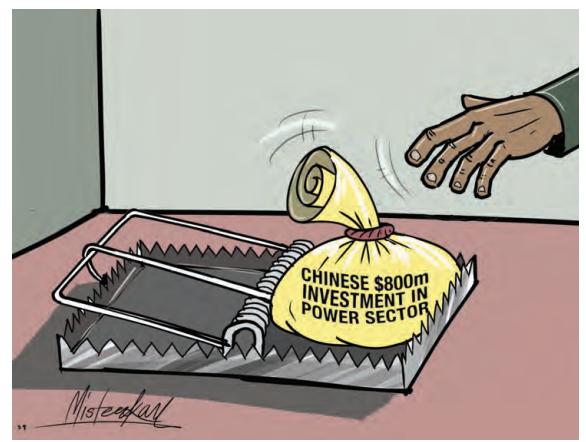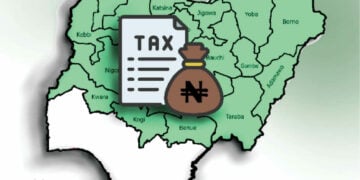For many Nigerians, the present is fraught with depressing moments, as the country confronts multifaceted challenges threatening to shred its corporate existence. The citizens have not only been overstretched; the sovereignty of the nation is being challenged by non-state actors who now impose protection levies on distraught farmers to enable them access to their farmlands.
Natural disasters like the recent flooding that ravaged Borno State and other states are not only recurring devastations, the recent release of N3 billion by the federal government to each state to contain flooding is only a pin drop of what is needed. A nation that does not plan to avoid natural disasters only plans to spend much in containing their desolating impacts.
Of all the frontline challenges militating against the unity and development of the nation, the difficulties in surmounting the rot in the power sector remain ever-present and increasing. More than any period in the history of Nigeria’s independence, electoral promises are gradually wearying citizens whose living conditions have plummeted irreversibly to the bottom.
Energy Crisis
The cost of energy has become unbearable. Petrol is now the most precious liquid content in the country. Despite Dangote Refinery commencing production, you need to patronise the mobile refineries carried by thousands of our youths in jerry cans in various parts of the country. The management of petroleum resources has become mythological, with only the foolish and hypocrite understanding what goes on in the sector. Despite massive funding of the power sector that has gulped billions of dollars in the last 24 years or so, the Tinubu government recently unveiled plans to inject a Chinese $800 million investment into the power sector. For a sector that has been privatised, though not completely, what is the essence fronting for a sector that has produced nothing less than megawatts of darkness?
Of course, the promise to unbundle the transmission that is owned by the government has become the equator of barefaced corruption as manifested in the weekly and sometimes monthly collapse of the national grid, among others. Due to the fact that the power transmission sector is managed by the government, a cabal that is completely devoted to advancing its interests has effectively checkmated efforts at frustrating all attempts to unbundle the transmission section.
Scrutinising Investments
When the power minister, Adebayo Adelabu, disclosed that $800 million investment was coming from China, many Nigerians waited to know the details. From available records, the investment is to cover all DisCos for Benin, Port Harcourt, and Enugu Distribution Companies, Abuja, Kaduna, Jos, and Kano. The poser: Is it now the responsibility of the federal government to secure investments for these DisCos which only bought over these companies with the sole purpose of working against the conditions of attracting Foreign Direct Investments (FDIs) in turning around the fortunes of the companies?
Over a decade since these DisCos commenced operations, most of them are known to be suitcase firms, with little or no technical expertise in managing the DisCos. After obtaining loans from Nigerian banks to foot the luxury of their new owners, some of the so-called GenCos and DisCos are only running these power firms as proxies. Despite having Nigeria’s assets seized in France, United Kingdom and Canada by Chinese companies over a business agreement gone awry with a South-based state, the federal government must be wary of not getting involved in any agreement with Chinese firms with power companies which have shown a predilection to compromise the interest of Nigeria.
Tinubu must be reminded that Chinese investments have always come short of expectations in Nigeria. The Asian giant is renowned for reneging on funding. Among these stalled projects are the $5.3 billion rail from Ibadan to Kano and another $3 billion rail venture from Port Harcourt to Maiduguri. There’s also the Abuja $460 million Close-Circuit Television (CCTV) that got bungled in corruption.
Untying From China
Nigeria must unbundle itself from the entangling foliage of corruption that has defined the management of projects entered into by China. It is obvious that we got it wrong ab initio, and what we need to do now is to disentangle our nation from the pacts and agreements with China to salvage the future for the unborn generation. For now, the performance of the power sector, over a decade since its privatisation remains a sham and clear orchestration of deception. If Nigeria generated 5,000 megawatts in 2016, we must interrogate the reasons behind the present woeful performance.
Petroleum and electricity are key drivers in influencing our country’s economic trends. High cost of petrol and electricity translates into high cost of goods and services. For a nation that is import-dependent, the government should quickly intervene to avert a potential doom in the future. A secured nation devoid of rogue elements in the corridors is a healthy bidding for investments. Nigeria must be cautious of allowing the Chinese to take over the economy. An investment of $800 million in the power sector is akin to handing over the power sector to those who are only interested in finding markets for their finished goods.
The Tinubu government must look before it leaps. GenCos and DisCos must do the needful and work towards bringing FDIs to improve on the performance of the power sector they inherited. Nigeria must not hand its power sector over to China in the name of investments. The recent seizure of the federal government’s assets in France, the United Kingdom and Canada should serve as a timely lesson.





